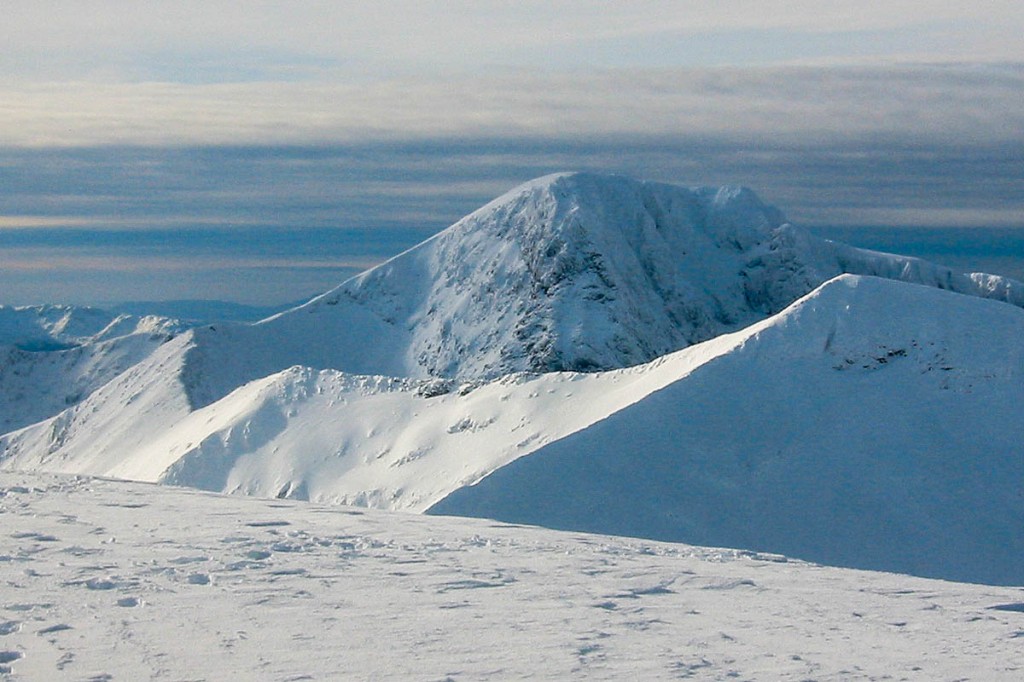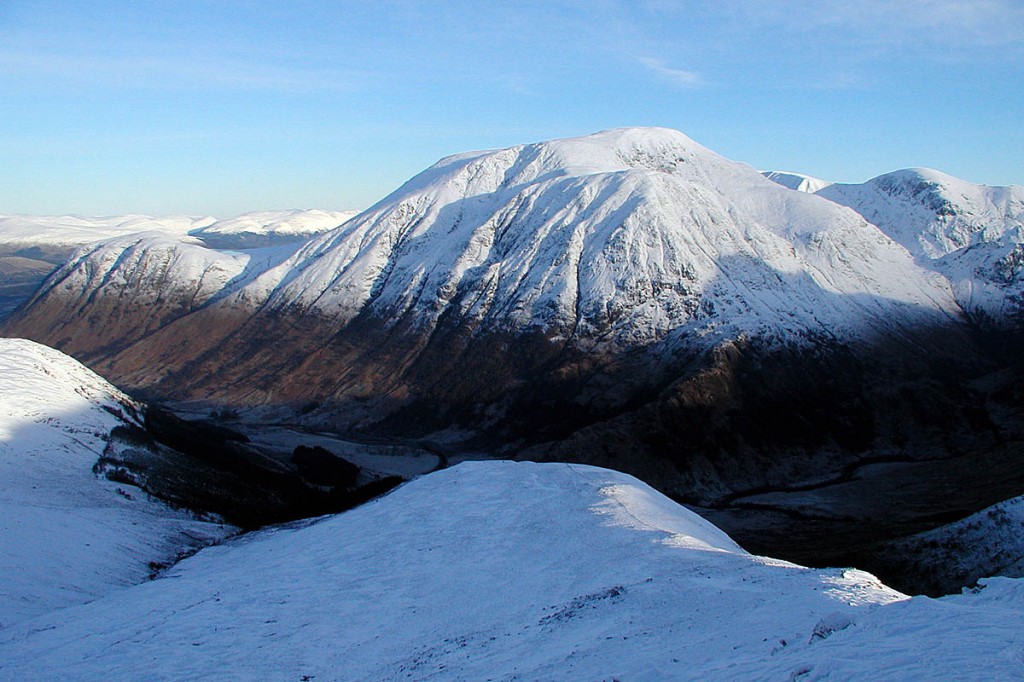Mountain rescuers have warned social media commentators to beware of what they wish for, after several posts saying four Ben Nevis walkers should be charged for their rescue.
Lochaber Mountain Rescue Team was responding after, predictably, posts on Facebook demanded the young men in Monday’s incident should face a bill for the volunteers’ services.
The four were brought to safety in blizzard conditions after straying on to steep ground in Coire Eòghainn after summiting the mountain.
But in a team post the following day on the social media platform, it said: “For those who call for charging and insurance for mountaineers/hill walkers, be careful for what ask for, as where do you stop, insurance for fishing, rugby, football all of which have more incidents and injuries than mountaineering?
“Mountain rescuers are all mountaineers who volunteer their services at absolutely minimal cost to the public purse. Insurance would lead to a professional service, which, for yesterday’s incident would have required about 30 full-time paid people on one single shift plus equipment etc to have been able carry out and then you have the admin, health and safety, bean counter et al – all funded by taxpayer.
“Leave as is, as we have a world class voluntary mountain rescue service which delivers via public donations.”
The team also revealed the four casualties, who were from overseas, had made a £200 donation to the team, along with gifts of chocolates, wine and whisky.
The statement said: “The casualties admit that they made a significant error of judgement and are extremely sorry for the results of their actions. The guys were just members of the public who perhaps were unaware of what they were getting into.
“Not being from the UK and with very limited English, a lot of the information available to mountaineers and hillwalkers would not have been accessible to them, so perhaps there is an element of mitigation in respect of their actions, clothing and lack of equipment.
“We would like to thank the guys from yesterday’s rescue for making the donation. These were very young guys who without any prompting made a very generous gesture which is very much appreciated. Not everyone rescued appreciates that we are not full time or not paid to be at their beck and call.”

Ben Nevis's relatively low height may lead to complacency among overseas visitors. Photo: Bob Smith/grough
Lochaber MRT also called for discussion about mountain safety among the wider public, rather than committed mountaineers and hillwalkers, to whom much of the current information is directed.
It said: “At present money from the Scottish Government is channelled, via sportscotland, quite rightly so, into the Avalanche Information Service and for training and education through centres like Glenmore Lodge and agencies such as Mountaineering Scotland.
“Most of this will be targeted at people who are either engaged in the sport or have an interest in taking it up.
“Perhaps more thought needs to be given into how to inform the general public/casual tourist about how dangerous our small mountains are and how severe our weather can get and how it will catch out the unwary and uninformed at any time of the year.
“Unfortunately it takes incidents like yesterday’s to raise the profile in the media and the message has definitely got out. So there is a positive from the incident. Therefore, let us just cut the guys a little bit of slack.”
The team also touched on the use of the controversial What Three Words app in the rescue.
It said: “It was a life saver on Monday. However, it is not the panacea, as like all technology it can fail. All it needed was for the casualties to have been a few metres lower and they would have had no mobile coverage to relay their location to us, or the batteries could have easily have failed in extreme cold.
“A small miscommunication when the information first came through to us gave a location in Canada. If you plan to use smartphone technology to navigate or think it will give you info/connectivity to get you out a situation, it could fail.
“You should always not be without having a map and compass and more important, the skills to use them. Same goes for winter gear such as ice axe and crampons (be able to use) and suitable clothing.”
The Lochaber rescuers also made a plea for continued funding by members of the public. “To ensure it is sufficiently funded, we need public donations so please give to a mountain rescue team.
“Not all mountain rescue is about mountains and many teams outwith the Highlands, and even those in the Highlands, do provide resilience cover at times of severe weather/flooding and when the full-time agencies cannot cope with scale of an incident.
“This is also significantly funded by donations for mountain rescue but we are sure our supporters would not grudge some of their money going back to the communities which we live in and allow access to our mountains and countryside.”
Donations to the Lochaber team can be made via its JustGiving page.

![[CC-2.0]](/lib/img/layout/cc-attr.gif)
Christine Wright
15 February 2020What a sensible, balanced response. Totally agree with the team.
Jeff Breen
16 February 2020You should only be charged if you acted maliciously or without due care.i.e. lack of suitable equipment and the ability to use it. Otherwise no need for insurance or professional teams.
Martin Jonson
16 February 2020The make some very good points here but also some not so good ones.
I agree with Jeff.
No need for insurance or anything for those with a genuine need to be rescued but for those who acted with a complete lack of care or forethought then yes absolutely they should be charged. Such as:
- setting off onto the high fells 2 hours before dark in the middle of winter and then getting lost / or into difficulty. (everyone knows what time it gets dark)
- Reaching the snow / ice line with next to no equipment or suitable clothing and simply carrying on until they get into trouble. (Shows a complete lack of common sense)
- Expecting the mountain rescue teams to guide you off the fells because you're unable to navigate for yourselves. (if you can't navigate and can't be bothered learning keep off the higher fells. there are plenty of lower level walks to be found)
TH
16 February 2020For those foreign visitors "with limited English", perhaps warning notices at the foot of the hill should now be in 20 languages.
Munro Munro
17 February 2020I will never pay insurance to go to the hills and I also reserve the right to go to them when it's dark. Heard of torches?
Munro Munro
17 February 2020I will not pay insurance to go to the hills and I also reserve the right to go to them when it's dark. Heard of torches?
Steve
17 February 2020I guess Jeff is volunteering to be the arbiter of who should pay for their rescue. And also to be sued by those rescued who disagree with his view.
Margaret
17 February 2020Would help if we all remember Mountain Rescue is not a 'service', it’s not the RAC of the hills - mountaineers and hill walkers are 'privileged' to have many groups of 'volunteers' ready to assist in 'real' emergencies.
Jhimmy
20 February 2020The original ideals of MRT have now given way to brute tourism industry. I have great respect for MRT, but it's clear they wont survive if the population are "encouraged" to hill walk when job automation takes over and there's a drastic number of people with leisure on they hands.
Already in the last few years the Isle of Skye has been deluged with visitors. If you have a family, work or business could you cope with extra rescues if you're a member of a rescue team?
I was once totally opposed to charging, but having seen the numbers of people arrive in fancy cars, outragiously expensive jackets, etc and THEN expect to be rescued for free is amazing.
If your car breaks down, you accept paying for rescue. If you need rescuing on the hill you expect it for free. Goes to show what value is more important in your life.
Martin Jonson
20 February 2020#Jhimmy
You've got it absolutely spot on. I'm sure in time you'll be proved right.